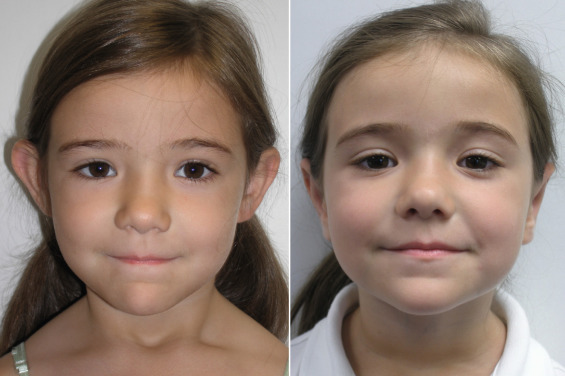Ear Reconstruction in Bulgaria
Search and Compare the Best Clinics and Doctors at the Lowest Prices for Ear Reconstruction in Bulgaria

Find the best clinics for Ear Reconstruction in Bulgaria
No clinics available
Israel offers the best prices Worldwide
Price: $ 14,755

- Home
- Bulgaria
WHY US?
At Medijump, we're making medical easy. You can search, compare, discuss, and book your medical all in one place. We open the door to the best medical providers worldwide, saving you time and energy along the way, and it's all for FREE, no hidden fees, and no price markups guaranteed. So what are you waiting for?

Free

Best Price

Widest Selection

Risk-Free
What you need to know about Ear Reconstruction in Bulgaria

Ear reconstruction is a surgical procedure to rebuild a damaged ear caused by trauma, accident or cancer surgery, as well as misshapen or underdeveloped ear due to a disorder present at birth (congenital). There are several types of ear reconstruction, including microtia repair (creating an ear for people with an inborn condition where their outer ears are malformed, small, or absent), otoplasty (to make the earless prominent), and ear defect repair (to restore the form and function of the outer ear after trauma, accident, or cancer surgery).
What Does the Procedure Involve?
All types of ear reconstruction can be performed under local or general anesthetic. The first stage is creating the ear, your surgeon may use your own tissue, such as cartilage or skin to reconstruct the ear or use a prosthetic. Then, the next stage is putting the ear into position, so that it appears and looks just like a normal ear would.
How Long Should I Stay in Bulgaria for a Ear Reconstruction Procedure?
Most people can leave the hospital on the same day as the procedure. However, adults with complex cases and children need to stay in the hospital overnight. After you are discharged, you should aim to stay in Bulgaria for 5 to 7 days for follow-up checkups and removal of stitches.
What's the Recovery Time for Ear Reconstruction Procedures in Bulgaria?
You should plan to return to work within 5-7 days if your job is not physically demanding. The total recovery time can vary from two to six weeks. Ask your doctor when you can resume your daily activities, such as exercises and heavy lifting.
What sort of Aftercare is Required for Ear Reconstruction Procedures in Bulgaria?
During your recovery period, you need to avoid sleeping on your side and wear a loose headband that covers your ears at night to keep pressure off your ears. Wear button-down shirts or shirts with loose-fitting collars so you do not have to pull anything up over your head.
What's the Success Rate of Ear Reconstruction Procedures in Bulgaria?
Ear reconstruction has a high success rate of more than 90% and most patients said the result was excellent. Although very rare, there are side effects and risks to be aware of, including infection, scarring, and blood clots. Some people may not be satisfied with the result because the ear placement is asymmetrical or overcorrected, in this case, consult with your surgeon about the possibility of revision surgery.
Are there Alternatives to Ear Reconstruction Procedures in Bulgaria?
Although ear reconstruction is the best option for ear deformity, those who are not able to undergo this procedure can opt for an alternative which is prosthetic ears, which involves inserting titanium pins into the skull to clip the prosthetic ears.
What Should You Expect Before and After the Procedure
Before an ear reconstruction surgery, you may have a birth defect that made your ear malformed or absent, your ears may stick out too far from too much, or too large in proportion to your head. After an ear reconstruction surgery, you will notice a change in the appearance of your ears immediately. The changes are permanent and natural.
Whilst the information presented here has been accurately sourced and verified by a medical professional for its accuracy, it is still advised to consult with your doctor before pursuing a medical treatment at one of the listed medical providers
No Time?
Tell us what you're looking for and we'll reachout to the top clinics all at once
Enquire Now

Popular Procedures in Bulgaria
Prices Start From $370

Prices Start From $28

Prices Start From $167

Prices Start From $120

Recommended Medical Centers in Bulgaria for procedures similar to Ear Reconstruction

- Interpreter services
- Translation service
- Religious facilities
- Medical records transfer
- Medical travel insurance
- Health insurance coordination
- TV in the room
- Safe in the room
- Phone in the room
- Private rooms for patients available

- Interpreter services
- Translation service
- Religious facilities
- Medical records transfer
- Medical travel insurance
- Health insurance coordination
- TV in the room
- Safe in the room
- Phone in the room
- Private rooms for patients available

- Interpreter services
- Translation service
- Religious facilities
- Medical records transfer
- Medical travel insurance
- Health insurance coordination
- TV in the room
- Safe in the room
- Phone in the room
- Private rooms for patients available

- Interpreter services
- Translation service
- Religious facilities
- Medical records transfer
- Medical travel insurance
- Health insurance coordination
- TV in the room
- Safe in the room
- Phone in the room
- Private rooms for patients available
Ear Reconstruction in and around Bulgaria
Introduction
Bulgaria has plenty to offer and tourists are going to be very impressed with the country’s mountainous landscapes, beautiful Black Sea beaches, fascinating history, friendly locals, lively nightlife, and affordability. Although the country’s holiday tourism is very much on the radar, it is also actually quite popular with medical tourists, due to its modern medical centers, highly trained medical professionals, state-of-the-art equipment, affordable healthcare, and mineral baths, thousands of medical tourists visit this country each year. Most of the medical tourists come for dental treatment, orthopedic surgery, elective surgery, neurosurgery, as well as health screening.
Popular Cities and Regions in Bulgaria
Bulgaria’s laid-back capital city, Sofia, is truly a must-visit. It is full of museums, Ottoman mosques, communist architecture, chic galleries, Eastern Orthodox churches, amazing restaurants, and upbeat clubs. One of the most popular landmarks in the country is the Aleksander Nevski Cathedral, which is an awe-inspiring church built between 1882 and 1912 to honor 200,000 Russian soldiers who died fighting for the independence of Bulgaria during the Russo-Turkish war. If you want to relax on beautiful beaches visit Varna, which is a major tourist destination during the summer. The second-largest, city in Bulgaria is Plovdiv and it is one of the oldest continuously inhabited cities in Europe. Tourists are attracted by the Roman Amphitheatre, Archeological Museum, and Tsar Simeon Central Garden.
Transport in Bulgaria
Most international tourists will arrive at Sofia Airport, which serves flights to most numerous major cities in Europe and the Middle East. There are several budget airlines that operate flights from this airport, including Ryanair and Wizz Air. Domestic flights are available, but they tend to be expensive. Therefore, to travel from one city to another, trains and buses are the best option. Buses and trains are punctual and affordable. However, if you are in a hurry, you should avoid trains as they can be a little slow. To travel around big cities, taxis are widely available and are really cheap. Just make sure you choose a licensed taxi to avoid being overcharged.
Visas in Bulgaria
While Bulgaria is not yet a part of the Schengen Area, it has a visa policy that is based on the Schengen system. Therefore, holders of Schengen Visa are allowed to enter the country. Additionally, citizens of 62 countries, including the US, Australia, and the UAE, can stay in the country for up to 90 days without a visa.
Weather in Bulgaria
From June to August, Bulgaria experiences summer. The weather can get a bit hot and humid, with an average temperature of 19°C to 21°C. July is the wettest month in the country. Winter, from December to February, is usually freezing. Autumn and Spring bring pleasant weather.
Additional Info
- Local Currency: The official currency is the Bulgarian Lev (BGN). 1 USD will get you approx. 1.8 BGN.
- Money & Payments: You can find ATMs in every city in the country. Credit cards are accepted in bigger restaurants and hotels. Tipping is sometimes expected.
- Local Language: Bulgarian is the official language in Bulgaria. Turkish and Roma are spoken by a minority of people. English is becoming more and more common in the country, but it is not widely spoken.
- Local Culture and Religion: Christianity dominates the population of Bulgaria, followed by Islam and Judaism.
- Public holidays: Bulgaria celebrates several historical and religious holidays, such as Orthodox Good Friday, Orthodox Easter Day, Independence Day, Culture and Literacy Day, Christmas Day, and Liberation Day.
Popular Searches
- Plastic Surgery in Thailand
- Dental Implants in Thailand
- Hair Transplant in Thailand
- Breast Augmentation Thailand
- Gastric Sleeve in Thailand
- Gender Reassignment Surgery in Thailand
- Laser Hair Removal in Bangkok
- Botox in Bangkok
- Dermatology in Bangkok
- Breast Augmentation in Bangkok
- Coolsculpting in Bangkok
- Veneers in Turkey
- Hair Transplant in Turkey
- Rhinoplasty in Turkey
- Stem Cell Therapy in Mexico
- Rhinoplasty in Mexico
- Liposuction in Mexico
- Coolsculpting in Tijuana
- Rhinoplasty in Korea
- Scar Removal in Korea
- Gastric Sleeve in Turkey
- Bone Marrow Transplant in India
- Invisalign in Malaysia
- Plastic Surgery in the Dominican Republic
- Tummy Tuck in the Dominican Republic
- Plastic and Cosmetic Surgery in Poland
- Rhinoplasty in Poland
- Hair Implant in Poland
- Dental Implants in Poland
- IVF in Turkey